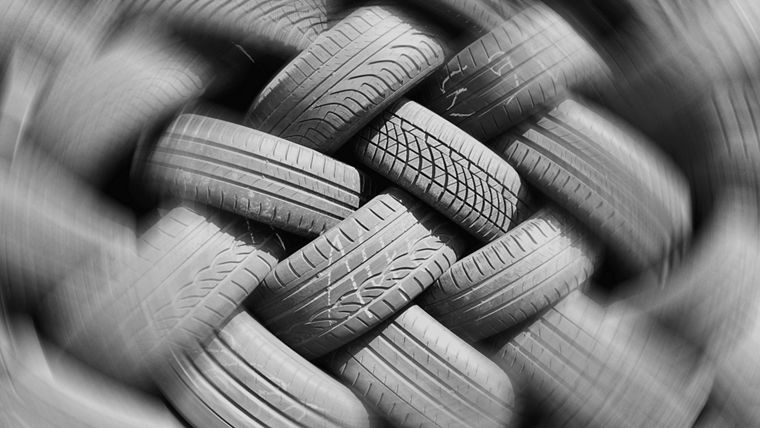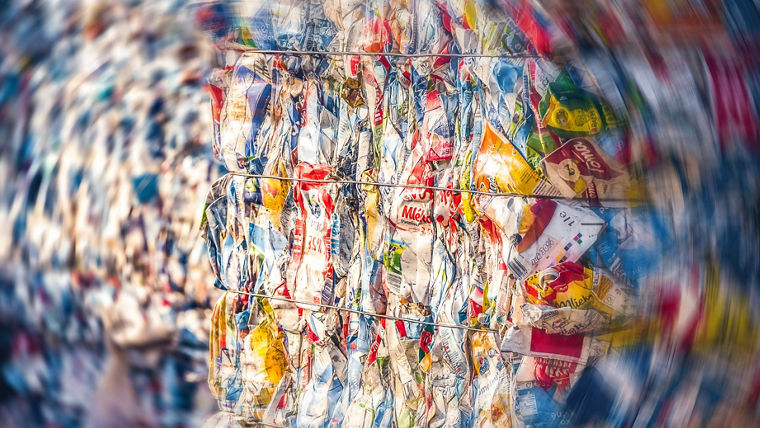Revolutionizing technology for a sustainable future
Chemical recycling is an innovative method of transforming plastic waste back into its basic chemical components. Unlike mechanical recycling, which physically processes unmixed thermoplastics, chemical recycling involves a chemical conversion, breaking down the polymer chains of the source material into monomers using catalysts. These monomers can then be reused as raw materials in various chemical processes.
This method is particularly effective for heavily soiled, dyed plastics or plastics mixed with additives, as well as for thermoset materials that cannot be melted.

Transforming waste with chemical recycling excellence
Chemical recycling is pivotal to the circular economy. By converting low-grade waste raw materials into high-quality chemicals, previously unusable plastic waste streams can be recycled. This process reduces use of fossil raw materials and helps to minimize waste incineration and landfilling.
Evonik is a pioneer in chemical recycling, offering a range of advanced solutions to maximize plastic waste recycling through additives and catalysts that making the processes more robust, increasing yields and qualities.
Chemical and mechanical recycling: A collaborative approach to sustainable transformation

Our plastic recycling solutions have already proven their effectiveness on a pilot scale. For example, in PET methanolysis using sodium methylate as a catalyst or in polyurethane recycling using tailor-made catalysts we have developed.
We are also heavily involved in converting mixed plastic residue into pyrolysis oils. Our adsorbents and HPC catalysts efficiently remove impurities and contamination during production, while our additives stabilize the finished pyrolysis oil and minimize crystallization.
This pyrolysis oil can then replace petroleum-based naphtha in petrochemical processes, producing ethylene or propylene for polyethylene or polypropylene, identical to fossil variants but free of mideral-oil.
With millions of tons of waste ready to be transformed into valuable materials, mechanical and chemical recycling are complementary technologies with the potential to achieve this. We would like to invite you to join us in this pioneering work. Our Circular Economy Program team is eager to collaborate with you.
Discover our circularity solutions in practice
Discover the transformative power of Evonik's Circular Economy program through our insightful case studies: Unveil how cutting-edge strategies and collaborations drive resource efficiency and sustainability across industries.






